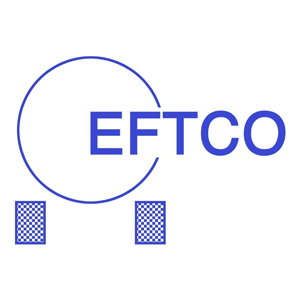ENFIT for purpose
At the beginning of this year, ENFIT published its first international guidelines for the transport of unpackaged raw materials and food in transport containers.
The new guidelines have been put together by 58 experts from the food, logistics and tank cleaning station industries. There were also contributions from plant manufacturers, certification companies and consulting firms. More than 2,000 copies have already been requested worldwide and not just from global food producers.
Other organisations that have requested a copy include well-known corporations like BASF, Bayer, DOW, Nestlè, Barry Callebaut, Mars, Cargill, Nordic Sugar and Südzucker, to name a few.
The guidelines were submitted to the European Commission for approval by member states at the beginning of the year and they are currently going through the procedural stages at the EU.
“We are very hopeful that the recognition process can be successfully completed by the end of this year and this recognition will give companies added status,” said Philipowski.
Going digital
Philipowski added that ENFIT has carried out various digital training courses for participants from all over the world in the first half of the year, which have been very successful.
He continued: “We have also carried out complete supply chain analysis work with the aim of developing a binding catalogue for the selection of suitable logistics and transport companies, as well as their cleaning stations.
“Cleaning stations that have been certified according to the ENFIT HQF standard (food, feed, chemicals) developed by the organisation over the past few years will have significantly better chances of being fairly paid for their services.”
ENFIT has been working with certification company DNV since January in the complex area of certification and training of staff at cleaning stations. The first cleaning stations have already been successfully certified by DNV. Additionally, since the middle of 2020, ENFIT has been working alongside GMP + International in the field of feed hygiene.
Philipowski said the common goal was to make animal feed transportation safer while also incorporating ENFIT’s high standards into this particular sector. He added: “Due to the fact the food, feed and chemicals industries have recognised that a lot of contamination can also result from the transportation process, or from insufficient cleaning of the transport containers, these industries have begun to attach increasing importance to the fact these processes need to be traceable as well as standardised.”
New certification
ENFIT has also revealed a new cleaning certificate, the ECC-ENFIT Cleaning Certificate for the food, feed and chemicals industry. This internationally recognised certificate will not only be issued when tanks, containers or industrial bulk containers have been cleaned, but are also applicable for reefer containers, refrigerated and box vehicles.
The certification also applies to special vehicles transporting animals, crates, boxes and trolleys. Philipowski said the organisation has set up a new international working group to deal with issues pertaining to the new certification while companies who have not signed up are urged to register. The first meeting of the new working group will be held on 15 June.
According to Philipowski, cooperation with the international food control authorities has continued to expand. This includes work with the European Commission, the US Food and Drug Administration, the Saudi Arabia Food and Drug Administration, and the World Health Organisation. ENFIT has also been working with important organisations concerning the transportation of food that adheres to Islamic law, or halal goods, such as the MUI in Indonesia, JAKIM in Malaysia, MUIS in Singapore, and CICOT in Thailand. For kosher products, work has been ongoing with organisations like the Hager Kasruth Committee and Rabi Meyers in Antwerp.
Global expansion Since the beginning of last year, ENFIT has expanded its global influence by setting up country representatives.
A partnership network has now been developed in countries such as Germany, Belgium, Austria, Switzerland, the Netherlands, Denmark, Sweden, Brazil, US, Canada, Malaysia, Indonesia, United Arab Emirates and the Philippines. “These activities are progressing and are a milestone in our history,” commented Philipowski.
Blockchain cloud technology
ENFIT is also breaking new ground with hybrid blockchain cloud technology as well as its new ENFIT-bulkvision Blockchain-Cloud-Technology. Philipowski added: “Many processes in logistics still work manually today whether it concerns checklists, cleaning certificates, information on locations and the condition of transport containers. “A lot of this is still filled out, printed or given to the driver.
One of the issues is that language is often a major barrier and errors can occur when important information is transferred in this way.
These mistakes inevitably lead to issues between the contractual partners and can be very time consuming to resolve. At the end of the day, this makes the logistics process ineffective and more expensive. “There can be communication issues with staff at the loading stations, for example, in identifying seals or obtaining information about the number of compartments, the load weight and other technical details. “However, with the new blockchain technology, ENFIT and the software developer have created an intelligent solution for all participants in the logistics chain.”
The new software has many advantages for logistics and transport particularly during loading and unloading, for cleaning stations and container depots.
This new digital process tracks the location of a transport container including its expected arrival time at the loading and unloading stages while all check-in and check-out processes are completely digital.
Philipowski concluded: “Logisticians and cleaning stations can, therefore, use their time more effectively. The owners of the transport containers can communicate in real-time with their partners, for example, with depot operators and cleaning stations.
“Checklists are no longer processed on paper and laboriously transferred into Microsoft Excel tables, which are then sent from one to the other by email. All communication takes place online, directly and in realtime – all over the world. This is real innovation with new possibilities.”
For more information: Visit enfit.eu. Those interested in obtaining a copy of the new guidelines or details about the new working group can email info@enfit.eu.





